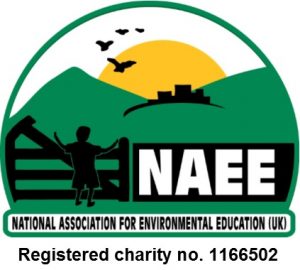 NAEE is to receive a Green Apple Award (2018) for environmental best practice. Our submission for the award will be included in The Green Book, an international work of reference.
NAEE is to receive a Green Apple Award (2018) for environmental best practice. Our submission for the award will be included in The Green Book, an international work of reference.
The Green Apple Awards began in 1994 and provide recognition for environmental endeavour among companies, councils, communities and countries. The awards are organised by The Green Organisation – an international, independent, non-political, non-profit group, and the awards are supported by the Environment Agency, the Chartered Institute of Environmental Health, and the Chartered Institution for Waste Management. This year, there were 500 nominations for the Environmental Best Practice award. The award will be presented in November at the House of Commons.
.
The new UK aid-backed programme to link up UK schools with African, Asian and Middle Eastern classrooms – Connecting Classrooms through Global Learning (CCGL) – was launched on 13 September by the International Development Secretary and the Secretary of State for Education. This is jointly funded by the British Council and DfID and replaces the Global Learning Programme and the British Council’s Connecting Classrooms. To mark the launch of the programme, visitors joined in the ‘World’s Largest Lesson’, where students from St Joseph’s school linked up with students at the Marka Prep Girls’ School N2, in the Marka refugee camp in Jordan. You can read the full press release here and register your interest here.
.
You can catch up with what Alex White has been up to lately, here. Alex is a 15 year old naturalist with a passion for British wildlife, especially badgers and hares, who’s been blogging since 2013 and has written for the NAEE journal. He took part in Chris Packham’s recent ‘The People’s Walk for Wildlife’ not only for the sake of the Badgers being killed but for the declining hedgehogs, the Water Voles losing their habitat or all the other mammals, birds, insects and plants that are struggling to survive as our human population grows. He walked to celebrate the passion of the people who care and for a time when people and nature can live together.
You can see Alex on YouTube (along with many other young people) explaining why they went on the walk. Inspiring!
.
Chris Packham has published a peoples manifesto for wildlife. It was conceived to publish a set of informed ideas from a parliament of strong, independent voices. Ideas which, if implemented today, would make a huge difference for wildlife tomorrow. The manifesto presents a series of essays highlighting some of the most critical concerns affecting the UK landscape and its species, each accompanied by ten commandments – ‘no-brainer’ solutions to the problems, and it’s been written to be accessible to everyone with an interest in the health of our countryside and a respect for the species that live there.
CP says that the manifesto is deliberately incomplete. It covers issues which specifically apply to wildlife and its conservation – somewhat artificial given that many wider environmental factors exert enormous pressures upon both. It’s presented as a first draft, in hope and expectation of response. You can read more about it here, and download it here.
.
The University of Bath’s Milner Centre for Evolutionon is launching a free online course that starts on Monday 29 October to provide tried-and-tested resources to support them in teaching evolution. This is aimed at primary and secondary school teachers, students, parents, and anyone interested in understanding evolution. The learning outcomes are that by the end of the course, you’ll be able to…
.
The Elen MacArthur Foundation has a number of teaching resources on the circular economy.
- Challenging Common Conceptions
- Exploring the Circular Economy
- Understanding the challenge of finite resources
- Designing for a Circular Econom
- The Circular Economy and Modern Agriculture
- Redesigning Plastics
- The Future of Cities
You can access them here. There’s also an Introduction to Complexity – a module for developing systems thinkers which has been developed in collaboration with the International Baccalaureate and United World Colleges – a guide to the circular economy for early years – and a newly-published global snapshot of circular economy learning offerings in higher education.
.
Finally, NAEE’s AGM is being held on November 3rd at Birmingham Botanic Gardens (a 1030 start). All members welcome.
